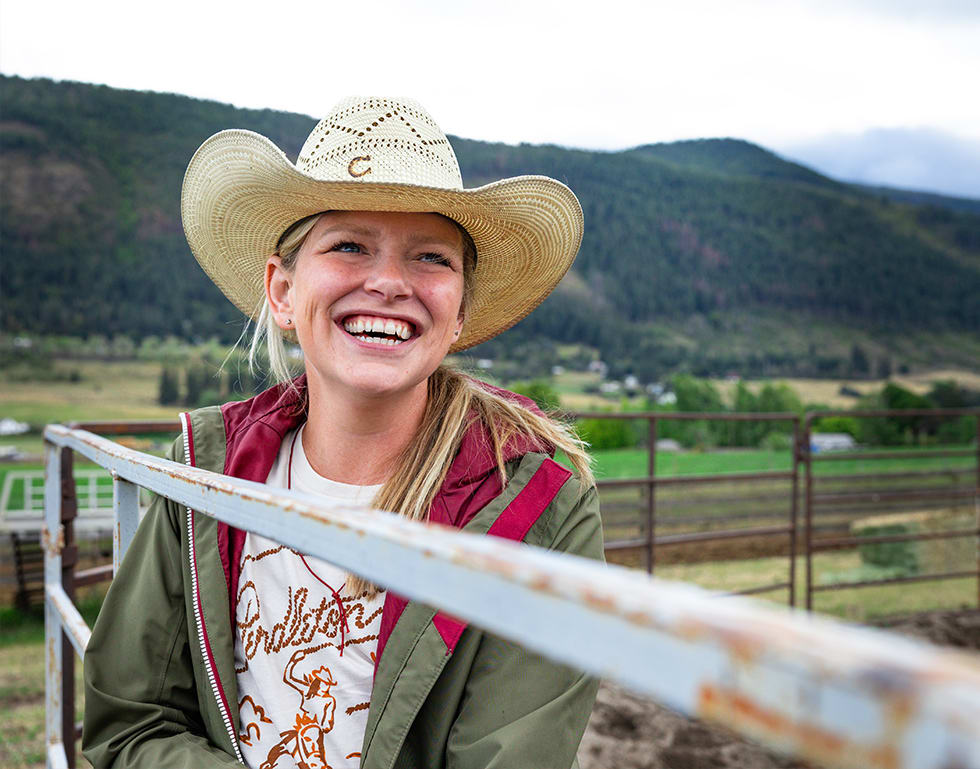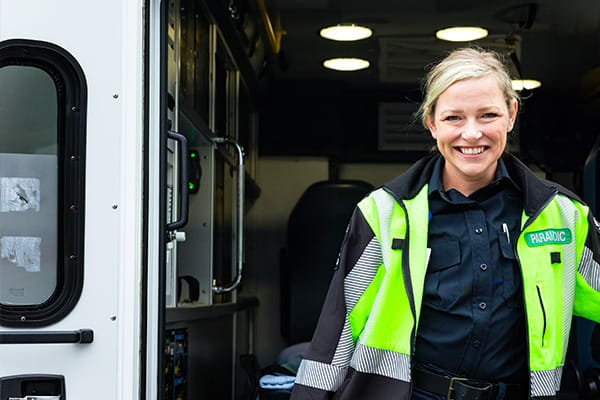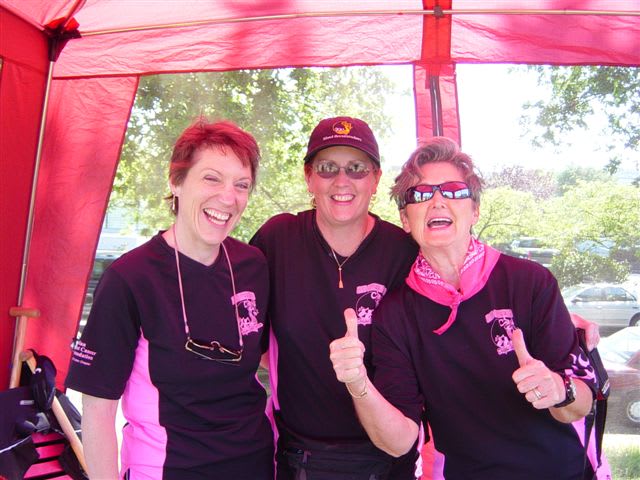Meghan Kreuger: Reflecting on Lessons After Breast Cancer
October 8, 2024
Found in BC Cancer - Kelowna, Breast Cancer

When Meghan Kreuger’s 11-year-old daughter, Maddison, complained she was having “a bad hair day,” as pre-teen girls are inclined to do, Meghan didn’t reassure her that her long, blonde hair was pretty.
“I said, ‘Pardon me, do you have hair?’ She said, ‘Yes.’ And I was like, ‘Then be grateful.”
Maddison was six when her mom was diagnosed with aggressive Stage 3 breast cancer, that required surgery, chemotherapy, radiation and eventually a radical double mastectomy including the removal of the lymph nodes under her right arm.
“She even helped me shave my head after my hair started falling out, so she gets it,” says Meghan, who shielded Maddison from the worst of it five years ago, but says, “We’ve been having big conversations about it now that she’s older.”
After losing her hair and her breasts at just 35-years-old, it’s also a talk Meghan says she has with herself every morning when she looks in the mirror. “It’s ingrained in us from young years — this crazy narrative, that is still in my head, that the ideal female has this long hair and these breasts.”
Meghan focuses on the fact that she’s alive and able to live out her many passions which includes her horses, — “they have definitely helped me through all of this,” — climbing mountains and giving back to her community.

Having gone through cancer, Meghan says she has a lot more compassion for patients in her job as a paramedic.
Having worked at Vernon Search and Rescue pre-cancer, Meghan wanted to continue serving her city so after she finished treatment she trained to become a paramedic. “I feel like I have a lot more compassion for patients, than I would have had previously.”
Cancer, unfortunately, quashed Meghan’s longtime goal of summiting Mount Everest. “After radiation, I have a reduction in the amount of air my right lung can inhale so all my dreams of being a crazy, cool mountaineer came crashing down.”
She was, however, able to make the hike to the Everest base camp in Nepal this past spring to celebrate turning 40. “The guides even sang ‘Happy Birthday’ and presented me with this cake at 18,000 feet.”
Meghan initially felt victimized by her diagnosis, but has since flipped from ’Why me?’ to ‘Why not me?’ “I have a supportive family. I have the financial means to step back from work. Unlike some people in the U.S., I don’t have to choose between affording the basics such as rent or food and chemotherapy.”
Meghan is extremely grateful to have experienced cancer care in not just Canada, but in B.C. in that it was “nothing short of amazing.”
Because of complications due to her breast implants she had her surgeries in Surrey, her chemotherapy treatments in Vernon and her radiation treatments at BC Cancer – Kelowna. “Even though I was treated in two different health authorities, in the Fraser and Interior regions, it was seamless. Everything under BC Cancer was fed to my local GP and to my oncologists.”
Meghan’s husband, Mike, sits on the BC Cancer Foundation’s Interior Transformation Council and he recently attended an event with BC Cancer surgical and radiation oncologists.
“Unfortunately, I couldn’t go, but he came home after and said, ‘I’m glad you didn’t come.’ I asked him why and he said, ‘Because with the treatment they have now I don’t think you would have lost your breasts.’”
It’s bittersweet, she admits, in that it’s too late for her own treatment, but at the same time, “I’m a pioneer in this new evolution in cancer care. Five years can change so much.”
The launch of BC Cancer – Kelowna’s first ever Surgical Oncology Research Program will further establish less invasive, more precise techniques and multi-disciplinary approaches to better integrate surgery with chemotherapy, immunotherapy and radiation — or even enable patients to avoid surgery entirely — starting with clinical trials for highly prevalent diseases including breast cancer.
“The transformation we have seen over the past decade in cancer care is providing patients with more options and greater hope.,” says Dr. Chris Baliski, BC Cancer’s Interior Regional Surgical Oncology Lead. “Thanks to donor support, we’re refining treatments to be not only more effective, but also less invasive, with the potential of avoiding surgery altogether. It’s an inspiring step forward in improving outcomes for patients.”
Meghan is grateful for all she’s gained post-cancer, including compassion, patience and self-acceptance, but says, “It’s incredible that someone diagnosed with breast cancer today, or tomorrow, may not have to go through what I did.”

Transform the Future of Cancer Care
Help support surgical oncology research, including life-altering clinical trials in less invasive breast cancer surgery, at BC Cancer – Kelowna.
Donate Today

